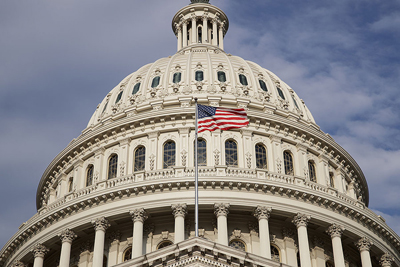Rising to the Cyber Challenge
 We are in a new age of warfare. Once was a time when bombs, bullets, ships, planes, tanks, and artillery were all that great powers needed to vanquish or intimate their foes.
We are in a new age of warfare. Once was a time when bombs, bullets, ships, planes, tanks, and artillery were all that great powers needed to vanquish or intimate their foes.
Now with the rapid rise of the information age, any nation can possess digital weapons to undermine our military edge or disrupt our way of life. These new weapons, existing in cyberspace, can reach anywhere, at any time, and do enormous damage but go virtually unseen.
They may not always result in the immediate deaths, but like a virus, they disable our defenses and cripple the basic mechanisms we need to support life—eventually costing American lives. Their ever expanding abilities could one day even effect life on a scale that rivals the most destructive nuclear weapons man has ever produced.
We have learned that in our new age, it does not take large industrialized states to develop advanced cyber weapons. We have seen impoverished and isolated nations like North Korea prove they possess cyber capabilities that challenge the defenses of our great nation.
We have only just entered this new era of cyber-enabled competition, and the full ability of state-sponsored cyber weapons has yet to be realized. But given the remarkable advance of technology today, we must ensure that we have all the tools and resources necessary to compete and win in cyberspace as we would at sea, in the air, or on land.
But this is not a contest limited to the military or our traditional security agencies to defend against. Our enemies are using their cyber weapons to undermine our economic strength and threaten the vary foundations of our democracy.
This new age of cyber-enabled warfare, poses risks that require government and the private sector to work together to secure our greatest secrets and guard our most precious rights. Like so many challenges we have faced before, we can overcome this one if we demonstrate our resolve and unshackle America’s innovative talents.
That is why I am proud to be an original cosponsor to Mr. YOHO’s bill, H.R. 5576, the Cyber Deterrence and Response Act of 2018. This bill will set the policy and direction for our federal agencies to effectively combat the rising cyber challenge.
The authorizations in this bill focuses our approach towards state-sponsored cyber activities and allows the President to use our tools of national power to deter and degrade our cyber opponents. Much like our methods to combat terrorism, this bill creates a process to designate adversaries who use cyber weapons against us.
We can then bring sanctions to bear on those individuals and entities that are exploiting the cyber realm to wage war or weaken the U.S. Through this bill, our enemies will find that their misbehavior in cyberspace has real costs and that America is already prepared to take on this new challenge.
And that’s just the way it is.








